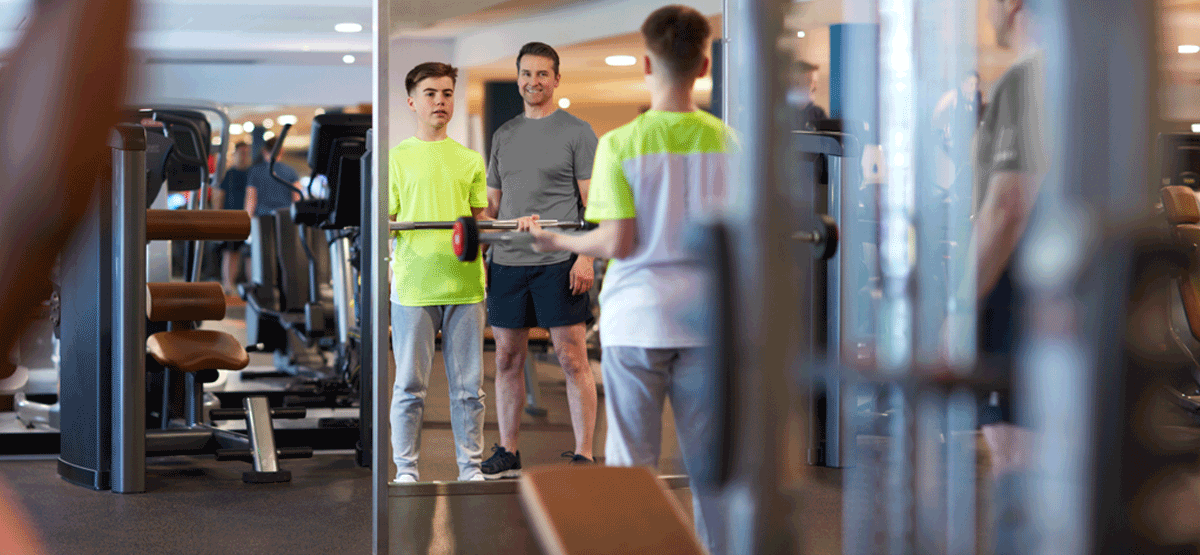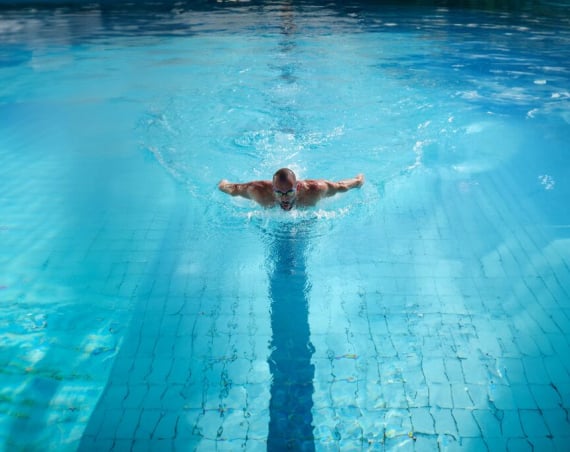Are you a teen thinking about getting started in the gym for the first time? Feeling unsure about where to start? Don’t worry, we’ve been there before! We know starting a gym programme can be intimidating which is why we’ve put together a guide to help answer your questions.
Starting a gym programme as a teen
Choosing to get active and fit as a teen is a wise decision. Not only will it set you on track to become a healthy, strong adult, it can help you feel more confident in your body and improve your mental health. Doctors recommend teens age 13 to 18 get at least 1 hour of moderate to vigorous physical activity most days of the week. Or at minimum, 30 minutes 3 times a week.
One of the things that will make this easier is finding ways to move your body that you truly enjoy. Whether it’s a team sport, swimming, tennis, running, weightlifting or a long walk with your dog – it all counts. The great thing about the gym (depending on where you go) is all of the different options available to you. For example, at David Lloyd Clubs, teens can use the cardio machines and weights in the gym, swim, play tennis and do various fitness classes.
If you’re beginning to work out in the gym, here are a few things to think about:
Try to focus on how you feel, not how you look
Your teens can be challenging and so much is changing – your body included. Social media, celebrity culture and more can all make us feel pressure to have the ‘perfect’ body and cause us to spend hours in the gym trying to achieve this.
The truth is that what we see presented in the media is extremely misleading. Bodies are diverse and come in all shapes and sizes: the important thing is not what you look like, but how you feel (easier said than done, we know!). The thing to try and remember is that exercise should make you feel strong, healthy and comfortable in our skin – it shouldn’t be used as punishment or in an unhealthy or harmful way.
So, when you exercise, try not to focus on your weight or aesthetics. Instead, focus on how it makes you feel: powerful, accomplished, happy and less stressed. These are the measures that matter; not any number on a scale or the size of your biceps.
Start slowly and set small goals
The trap many people fall into with the gym is expecting big changes too soon, feeling frustrated and giving up when they don’t happen. It takes a long period of time to achieve your fitness goals – especially when you’re a teen and your body is still growing and developing. While goal setting is important and can help keep you motivated and focused, they should be realistic and safe. Try to set small, achievable targets throughout your programme, take it slow and watch all your progress accumulate over time.
Incorporate some strength training
Strength training is great for teens and can help build strength and fitness. However, there are a few important rules to follow:
- Avoid heavy weights – as your body is still growing, lifting heavy weights is not advisable. Not only will it disrupt plate growth but damage your developing skeletal structure. While those closer to 18 can start introducing heavier weights with adult supervision, younger teens should stick to lighter weights with higher repetitions (endurance) and body weight exercises such as push-ups, crunches, and squats.
- Focus on your form – it’s important to learn correct form from the get-go. This will give you a solid foundation and help prevent any injuries. A sports coach, experienced adult or personal trainer will be able to show you the correct way to perform certain exercises and keep you safe.
- Exercise your entire body – we know it can be tempting to focus on one muscle group or half of your body to try and look a certain way. Try to avoid this if possible though as it may lead to muscle imbalances and strains.
Find a healthy balance
While it’s important to do enough exercise, it’s equally important not to take it too far and over train. Exercising too much can lead to injuries, fatigue, and, for girls, a change in menstrual cycles that could lead to bone loss. Each body is different and the amount of exercise your body can handle is unique to you. The best way to gauge what’s right for you is to listen to your body and rest when you need it. If you feel like your relationship with exercise is unhealthy, negative or causing you stress, speak to a trusted parent, teacher or coach.
If you’re a teenager and looking for help getting started in the gym, contact your local David Lloyd Club for help and advice.






